Hung Cuong - The unique "Triple King", making People's Artist Bach Tuyet "terrified" when performing together
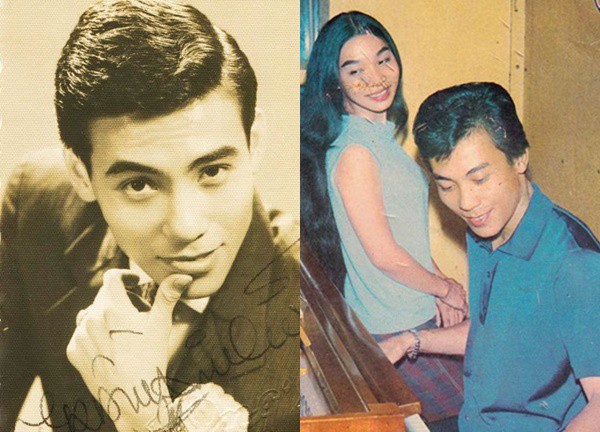
2 | 0 Discuss | Share
Duy Khanh is known as the most famous male singer, songwriter and music producer before 1975. He is considered one of the "four golden pillars" along with Hung Cuong, Che Linh and Nhat Truong.
Singer Duy Khanh was born in 1938, real name is Nguyen Van Diep, from Quang Tri. He was the youngest son in a family of the original family of Duke Nguyen Van Tuong - the deputy chief of Dai Than had supreme authority in many Nguyen dynasty kings.
Duy Khanh's biological father is Nguyen Van Trien, who used to teach before he was the Head of the Administrative Department of Quang Tri province. His mother is the daughter of Mrs. Thi Lang, Cong Do Van Dieu, the chief minister of Dau Kenh village, Trieu Phong, who is an exemplary and strict woman.
He started his journey to become a singer in 1954, then turned to composing songs for life since the early 1960s. After being known by many people, he did not deny his birth background in a poor countryside, instead he proudly affirms: "I was born in the heart of the Central region, in the middle of the ocean, in the salty and sour fields", making many people love and admire him even more.
Singer Duy Khanh's life and career are all associated with the Southern music scene. This can be seen clearly in his heart of loyal love for his homeland. Wherever he is, at any time, he is always proud to be a child of the mountains of Mai and Han River.
Duy Khanh's life of pursuing music did not encounter too many obstacles. In 1949, Duy Khanh was fortunate enough to be allowed to go to Hue by his parents to attend the middle school program. It was in this quiet ancient capital that Duy Khanh began his first steps in his famous music career.
In 1952, Duy Khanh won the first prize in a singer selection contest organized by Phap A radio in Hue with the song Peaceful Moon. Then to continue his music career, he moved to Saigon to live and started recording vinyl records combined with performing around the world.
Initially, he took the stage name Tang Hong, then Hoang Thanh to participate in new music shows at cinemas and cooperate with the music department of musician Hoang Thi Tho.
Early in his career, he often sang duets with female singer Tuyet Mai (who later became his life partner). Unlike two male singers, Anh Ngoc and Duy Trac, who only sang pre-war music on the radio and recorded vinyl records, Duy Khanh chose to pursue music with influences from folk songs and was very successful because it suited the tastes of the majority of the population at that time.
He often performs songs of his homeland - compositions of composers Lam Phuong, Hoang Thi Tho, Hoai An... and most of them are Pham Duy's songs such as Hometown Husband and Wife, Returning Day, Remembering the Invalids, Poor Love, Poor Country, Back to Central,...
In 1965, he duet with female singer Thai Thanh and recorded Pham Duy's song The Way of the Quan . Following this success, he recorded another epic poem Mother Vietnam . To this day, these two epics are still associated with the names of Thai Thanh and Duy Khanh.
Since 1959, Duy Khanh started writing music. His music is often reminiscent of his love for his homeland and country, with a hint of Hue folk songs and is very warmly received. His first two songs are Ai to Hue and Thuong to the central region.
A special feature of Duy Khanh's music is that it does not use clichés, just plain language of ordinary people; At the same time, the songs also contain pure and earnest features. In addition, musician Duy Khanh does not write songs praising ordinary love between boys and girls, instead he often inserts them into the context of his homeland and country. For example: Know How to Answer Stars, Letters About the Sisters of Chengdu, Rain in Life, Farewell Season, Desperate Night...
Then, in the period 1960 - 1975, Duy Khanh called on famous musicians like Trinh Lam Ngan, Do Kim Bang, Duy Khanh, Truc Phuong... to set up a group to publish a sheet music called 1001 Bai Ca Hay. The works published by the group are highly appreciated by music lovers because of the fine print and elaborate illustrations that are advocated by Duy Khanh himself.
In 1988, he went to the US and sang exclusively for the Van Village Center. In addition to appearing on a number of videos of the Asia Center, he also established Truong Son Center to sing and teach music until the end of his life.
Regarding married life, Duy Khanh's life is attached to 3 women. His first love was singer Tuyet Mai, who sang a duet with him in the early years of his career. Mrs. Tuyet Mai gave birth to him two children, the two separated around 1960.
In 1964, Duy Khanh married Au Phung, a beautiful dancer in the dance band Luu Binh Hong. The two also have two children together. However, they later divorced.
In the mid-1970s, Duy Khanh married Mrs. Thuy Hoa and lived together until the end of her life. At that time they lived in Vung Tau, and that was also the time when Duy Khanh organized very successful music festivals.
Some time after the events of 1975, when the music troupes were allowed to operate again, Duy Khanh borrowed the name of the local Cultural Information Office to establish the Que Huong troupe, which gathered many famous artists before 1975 to perform everywhere, including musicians Chau Ky, Nhat Ngan... and singers Ngoc Minh, Nha Phuong, Bao Yen...
After many years in and out of the hospital due to serious illnesses, in 2003 Duy Khanh passed away at the age of 66. Family and fans could not help but mourn his passing.
Musician Pham Duy said when he saw him off to the other side of the world: "In Duy Khanh's voice, listen to the sound of ancient drums and the sound of pine trees on Vong Canh hill".
Singer Che Linh revealed that his ex-wife destroyed all of his property and burned his plane while performing with Thanh Tuyen 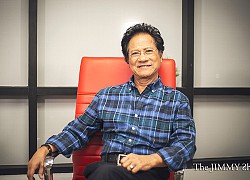 Thư Kỳ14:41:26 14/04/2022Recently, singer Che Linh has had moments to share her regrets when she lost many memorabilia because her ex-wife took her away. Che Linh was born in 1942, his name entered the hearts of people in the 60s and 70s with his passionate voice, featured with songs such as Ten years...
Thư Kỳ14:41:26 14/04/2022Recently, singer Che Linh has had moments to share her regrets when she lost many memorabilia because her ex-wife took her away. Che Linh was born in 1942, his name entered the hearts of people in the 60s and 70s with his passionate voice, featured with songs such as Ten years...

2 | 0 Discuss | Share
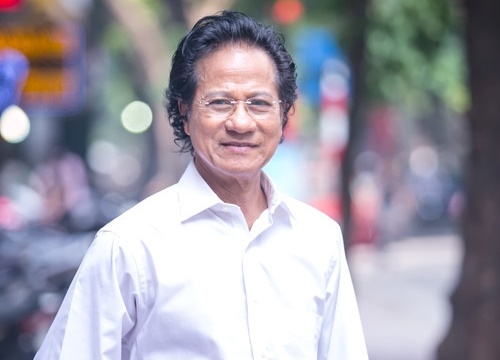
1 | 0 Discuss | Share

2 | 0 Discuss | Share
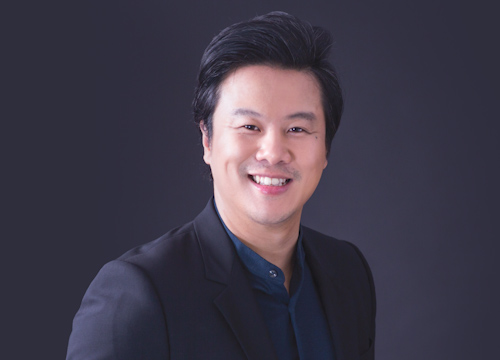
4 | 0 Discuss | Share

1 | 0 Discuss | Share

4 | 0 Discuss | Share

2 | 0 Discuss | Share
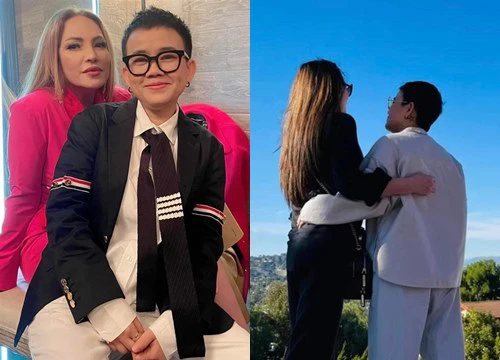
5 | 0 Discuss | Share

1 | 0 Discuss | Share

5 | 0 Discuss | Share

4 | 0 Discuss | Share

4 | 0 Discuss | Share




3 | 0 Discuss | Report